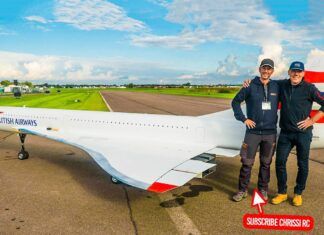
While the recently enacted tax cut legislation has economists and deficit-hawks scratching their heads because it came during a time of full employment, at the height of the longest economic growth period in our country’s history, is expected to bump the economy by 0.08 to 0.12 percent annually for the next few years and drive up the deficit by $1.5 trillion in the next ten years, the really important question for most Americans is, of course, “What’s in it for me?”
Since we’re as self-centered as the next American, we took a look at the question from the perspective of aviation. And, the answer is: At least in the short run, with one exception largely mitigated by another benefit, it ain’t bad.
Like-Kind Exchanges
We’ll get the negative news out of the way first. Section 1031 of the Internal Revenue Code (The Code) has long allowed deferring the gain on the sale of an aircraft if that aircraft is held for productive use in a trade or business or for investment and it is exchanged solely for another aircraft of a like kind that is also held for productive use in a trade or business or for investment.
For aircraft, that method of tax deferral vanished as of Dec. 31, 2017 (there is a transition rule in the legislation). Like-kind exchanges will only apply to real property. An owner will pay income tax at “ordinary income” rates on any gain realized on the sale of an aircraft, even if she or he replaces it.
Bonus Depreciation
On the very good side of the equation, the new legislation provides for 100 percent expensing (bonus depreciation) of new or used aircraft (if used, it must be the buyer’s first use of that aircraft) in the first year of use. It allows immediate write-off of the entire cost of property placed in service after Sept. 27, 2017, and before Jan. 1, 2023. The big news is the amount of the purchase that can be depreciated and the fact that it applies to used, as well as new, aircraft.

To offset the revenue loss from bonus depreciation, the legislation phases down the percentage that may be expensed in the first year starting on Jan. 1, 2023. Through Dec. 31, 2026, the level of bonus depreciation that may be taken drops in increments of 20 percent each year, although for certain properties with longer production periods, including certain aircraft, the last day is Dec. 31, 2027.
Ticket Tax
Section 4261 of the Code was amended to provide that owner flights on managed aircraft are not subject to the Federal Transportation Excise Tax (FET) imposed by Section 4261 and Section 4271. Instead, they are subject to the non-commercial fuel tax. This change confirms that the law is now consistent with the common understanding in the business aviation industry.
Payments by the aircraft owner (or lessee of a qualified lease) for aircraft management services related to maintenance, support or flights on the aircraft are not subject to the FET. The owner or lessee does not need to be on the flight as long as the owner (or lessee of a qualified lease) pays for the aircraft management services. The term “aircraft management services” is defined broadly. However, lessees who lease an aircraft from a management company or person providing aircraft management services for a term of 31 days or fewer do not qualify as “lessee” for purpose of the FET exception.
The FET exception only applies for flights paid by the owner or lessee. If an owner leases the aircraft to a management company and an affiliate of the owner pays for the flight, the exception may not apply.
Disallowance of All Entertainment Expenditures
For those in the business of selling aircraft, the legislation disallows deduction of all entertainment expenses, regardless of their connection to the tax payer’s business activities. We can’t help but think of the movie The Aviator and the scenes depicting the lavish parties thrown by Howard Hughes for those who were in the decision-making loop to buy his incredible H-4 Hercules and shed a tear for times gone by.
No Deduction for Transportation and Commuting Benefits

While not commonly applicable in the aviation world, the legislation eliminated deductions for any expenses incurred for providing any transportation, or any payment or reimbursement to an employee in connection with travel between the employee’s residence and place of employment, unless it is necessary to ensure employee safety.
It Looks Good
In our conversations with those in the aircraft sales world over the last week we heard a lot of optimism about the new and used aircraft market. It’s been steadily improving over the last few years and those we spoke with said they thought the new tax legislation would add to the growth. We’re certainly going to be watching to see what happens next.
Rick Durden has an undergraduate degree in economics, is a CFII, holds an ATP with type ratings in the Douglas DC-3 and Cessna Citation and is the author of The Thinking Pilot’s Flight Manual or, How to Survive Flying Little Airplanes and Have a Ball Doing it, Vols. 1 & 2.

































